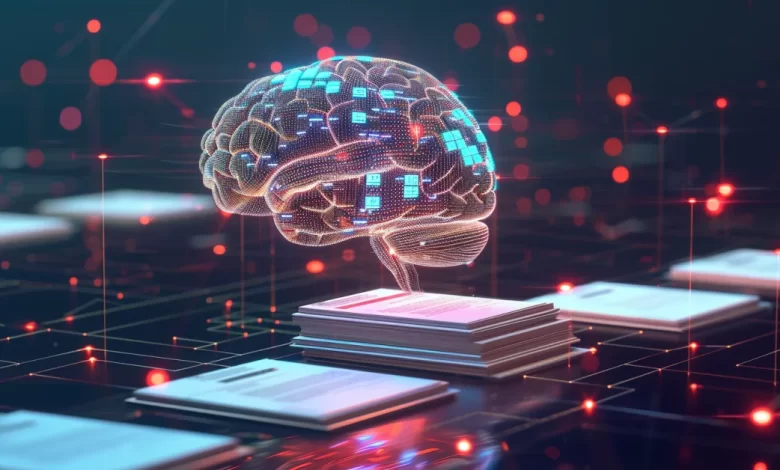
Artificial intelligence, or AI, is the technology that is taking the world by storm. It relates to the intent to copy human cognition. It has grown quickly since its beginning in the middle of the twentieth century. Just like human writing evolved from noting on stones to using computers, ‘Artificial Intelligence’ is part of human evolution.
As a result, like most novel facets, AI is also emerging as a concern to many. Of course, this is quite typical and even useful to a certain extent, as this makes us think and strive to comprehend things better. We can use it wiser if we just take a closer look at good old AI and think about what this means for humans.
Concerns about originality and human touch
The use of AI in literature can help with ideas and content, but there’s a problem and risk: the output won’t be entirely unique. AI models are trained on tons of existing data and produce content that looks too much like what already exists. That’s a problem for writers’ individuality and voice.
One of the major downsides of AI-generated content is the loss of the human element. As we all know, writing is an art that’s valued for its humanity and genuineness. AI can give suggestions and ideas, but it doesn’t have the human know-how a writer does. A perfectly written piece will have emotions, personal views, and a reader connection that AI can’t include. Tools like an AI writing detector for distinguishing between AI and human-written content are becoming increasingly important tools for maintaining authenticity in the literary world.
Risk of over-reliance on AI
On the other hand, if writers become too AI-dependent for error correction or content creation, they’ll lose the skill of editing thoroughly for a specific end goal the author has in mind. Too much technology means writers neglect their own professional growth.
AI in writing should be a tool, not a replacement for human skill and imagination. Writers must balance technology with their own writing process to protect their voice and tone.
Limitations of AI in complex literary works
ChatGPT can generate texts in different styles (poetry, short stories, novels) but will probably be better in short and simple texts. Creative writing and complex and deep literary works are still areas where human talent and experience are key. By using AI to edit or improve texts, writers are sharing their work with online services or third-party platforms, which raises questions about the privacy of the content.
Writers must know how their texts are used and stored when using AI. AI also raises ethical concerns, such as the risk of plagiarism or misuse of AI-generated content. It may even contain inherent biases based on the data with which the machine has been trained, which could lead to the spread of prejudice or discrimination in the generated texts.
Ethical challenges and copyright issues
AI raises ethical challenges related to authorship and originality, as content generation by algorithms can raise questions about human creativity and intellectual property. OpenAI just got sued for the first time over copyright. The writers Paul Tremblay and Mona Awad and the actress Sarah Silverman sued the artificial intelligence company OpenAI, responsible for the development of ChatGPT, for having used their works without their authorization to train the language model, in a judicial proposal that questions the sources of content.
Copyright is an area of law that protects original creative works, such as text, music, images, films, and software, among others: it grants the creators of these works certain exclusive rights over their use and distribution. ChatGPT is trained using large datasets containing public domain texts as well as copyrighted texts. Copyright on such texts exists and is enforceable, but the responsibility for obtaining the necessary licenses falls on the entity creating and distributing the AI model. Intellectual property laws across many nations currently protect human-created works, inventions, and innovations.
However, the rapid advancement of artificial intelligence poses new challenges for these legal frameworks. As AI systems become more sophisticated in analyzing and generating content, questions arise about fair use, copyright ownership of AI-created works, and the implications of training AI on copyrighted material.
The legal landscape will likely need to evolve to address these issues, balancing the rights of creators with the potential for AI-driven innovation. Policymakers and legal experts are actively debating how to adapt existing concepts like fair use to the age of AI, but concrete solutions remain elusive in this complex and fast-changing field.
Conclusion
Writing remains a human and personal process, and AI should be used as a complementary tool rather than a complete replacement. AI has opened up new possibilities and challenges in the world of writing. While it may be valuable to writers, it is important to consider the ethical implications and the preservation of literary authenticity. As technology advances, writers, readers, and the broader literary community must engage in active and thoughtful dialogue about how AI can enrich and complement human creativity rather than replace it. The intersection between AI and literature invites us to explore new creative frontiers and challenge our traditional conceptions of writing in all its variants.





